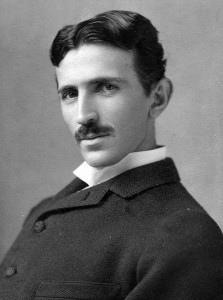Podcast: Play in new window | Download
Subscribe: Apple Podcasts | RSS
 Guest David E. Goldberg talks with us about shifting expectations for engineers, and reveals the crucial skills needed by tomorrow’s engineering professionals.
Guest David E. Goldberg talks with us about shifting expectations for engineers, and reveals the crucial skills needed by tomorrow’s engineering professionals.
- Listening and questioning are important skills for today’s engineer, but these subjects are rarely addressed in the engineering curriculum.
- Our guest is David E. Goldberg, who is the Jerry S. Dobrovolny Distinguished Professor Emeritus at University of Illinois at Urbana-Champaign (UIUC), and the CEO of ThreeJoy Associates.
- Dave obtained an amateur radio license as a teenager, allowing him to communicate around the world via a Model 15 teletype machine.
- A day spent shadowing a city engineer led Dave to enroll in civil engineering.
- Despite his background in civil engineering, our guest wrote one of the leading references about genetic algorithms. His interest in artificial intelligence was sparked by the book, Gödel, Escher, Bach: An Eternal Golden Braid.
- In 2010, Dr. Goldberg resigned his tenure at UICU, and undertook training as a leadership coach at Georgetown University.
- Dave’s efforts with engineering reform started with iFoundry at UIUC. This project was influenced by the National Academy of Engineering report, The Engineer of 2020. Another influential report was Engineering for a Changing World, authored by James J. Duderstadt of the University of Michigan.
- Making changes to the engineering curriculum is difficult, as it induces a log-rolling problem among the faculty.
- In the late 1800’s, leading electrical engineers enjoyed a “rock star” status. This included luminaries such as Thomas Edison, George Westinghouse, and Nikola Tesla.
- It has been argued that technology and innovation are dominated by market-driven value judgments, rather than technical knowledge. This leads to engineering being a socially captive profession.
- The rise and fall of engineers as business leaders may have resulted as a conflict between bureaucratic loyalty and professional independence, as outlined in The Revolt of the Engineers, a book by Edwin Layton.
- Dave discusses the myth that science won World War II. Manufacturing engineers helped US factories and shipyards crank out planes, ships, and other war materiel, equaling the contributions of physicists.
- After the war, “physics envy” caused changes in the engineering curriculum, as advised by the Grinter Report, issued in 1955.
- While the pre-WWII engineering curriculum covered math and science at a fundamental level, the number of “hands-on” classes (drafting, shop, design, etc.) were far more prevalent than they are today.
- Looking forward, innovation seems to be a crucial skill for engineers, as suggested by the following books:
- Thomas L. Friedman: The World is Flat
- Daniel Pink: A Whole New Mind
- Richard Florida: The Rise of the Creative Class
- When it comes to deciding whether software engineers are really “engineers,” Michael Davis of Illinois Institute of Technology (IIT) points to the lack of a accredited engineering degree as a reason for disqualifying programmers from claiming “engineering” status. Our guest makes no such distinction.
- Engineers need to move from being category “enhancers” to being category “creators.” Dr. Goldberg claims the primary difference between these functions is emotional, and not technical.
- Whereas engineers of the past needed to be obedient in enhancing marketplace offerings, tomorrow’s engineers must be courageous in “unleashing” their creative talents to invent novel products and services.
- Dave believes that engineering faculty must shift from an attitude of “I know” to “I trust” to successfully foster valiant young engineers.
- In his consulting work with ThreeJoy Associates, our guest works to transform the organizational, cultural, and emotional norms of institutions committed to engineering education.
- Big Beacon is a “social movement of the willing” formed to share best practices in reforming educational institutions. The project’s Twitter handle is @BigBeacon, and it has a Facebook page, as well.
- Slated for release in early 2014, Dave and co-author Mark Somerville are working on a new book, titled “A Whole New Engineer: A Surprising Emotional Journey.”
- Programs such as First Robotics and Project Lead the Way are having success in encouraging students to pursue engineering degrees.
- Unfortunately, students entering the engineering program are subjected to an math-science death march. Alternative rites of passage may be available for aspiring engineers.
- Coaching and collaborative skills may be useful for engineers who have completed a traditional engineering education. Google offers its employees a course on mindfullness.
- Dave can be reached by email as “deg” at “threejoy.com.” His Twitter handle is @deg511. He can be found on Facebook as deg511.
Thanks to Wikipedia Commons for the photograph of Nikola Tesla. Podcast theme music provided by Paul Stevenson